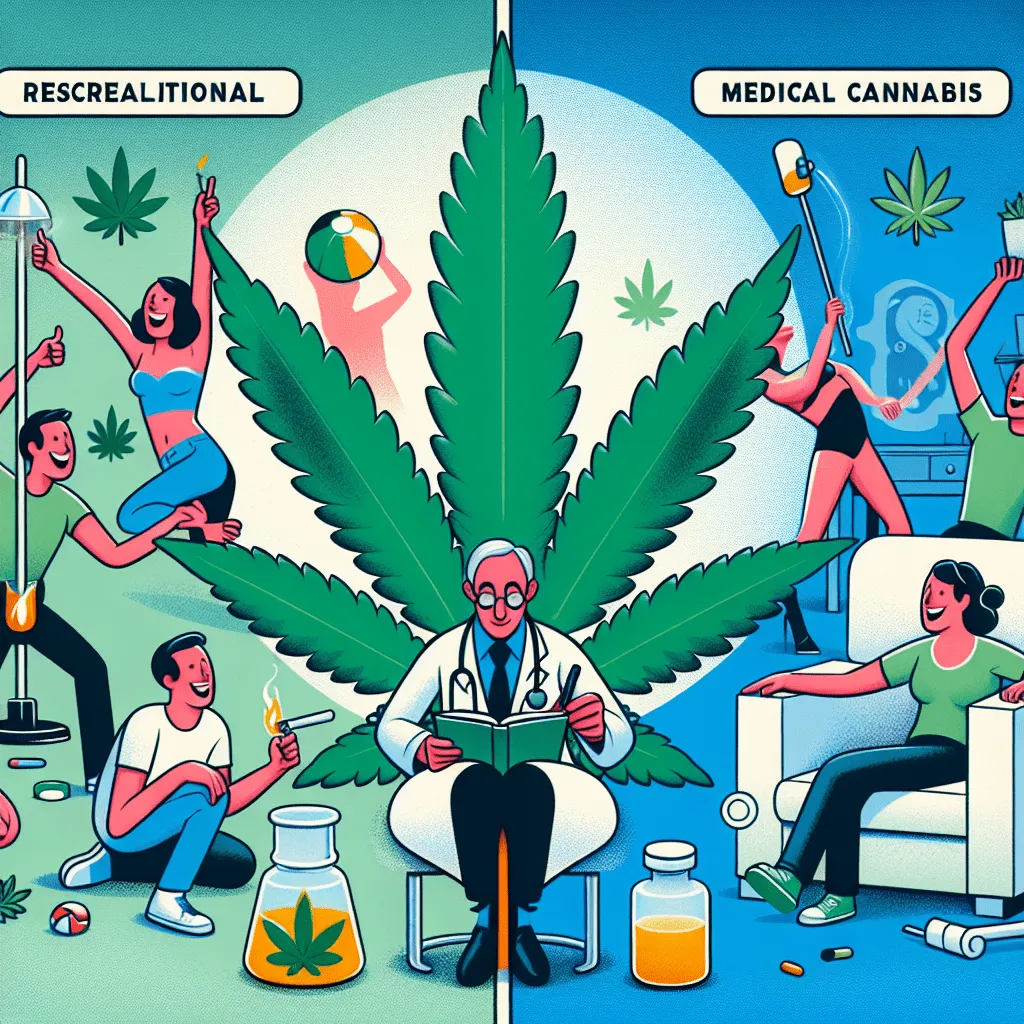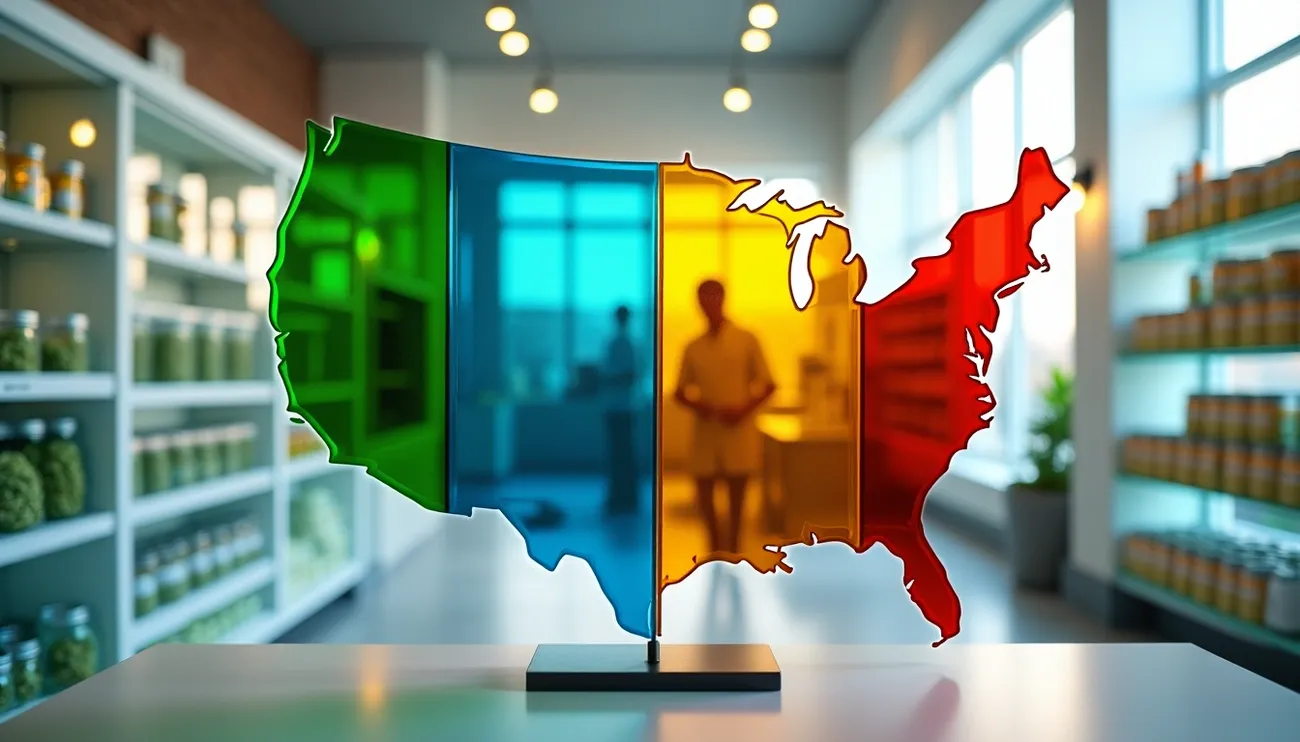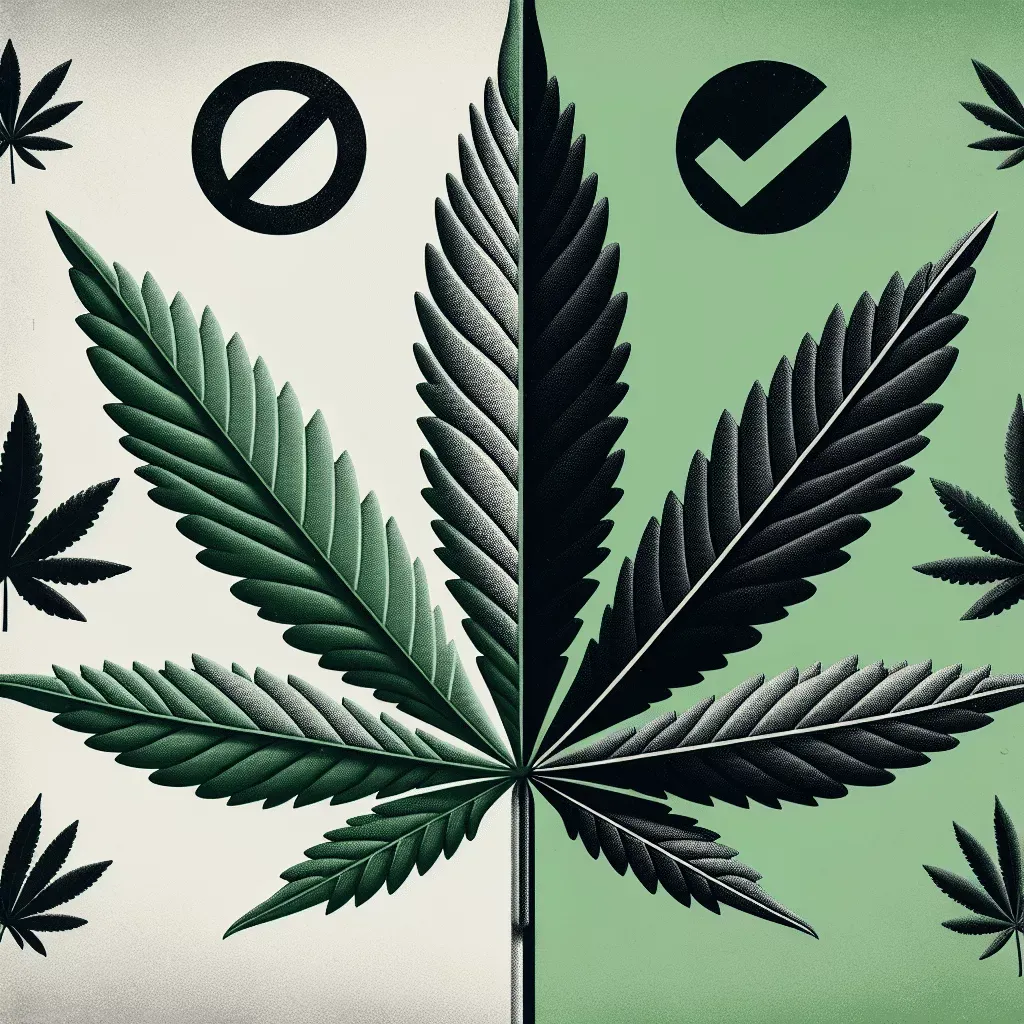Recreational vs Medical Cannabis Laws Explained
As conversations surrounding cannabis continue to evolve, it’s essential for everyone—from curious consumers to seasoned users—to understand the legal landscape of recreational and medical cannabis. The shifting laws can be perplexing, with different states adopting varying regulations that can influence everything from accessibility to legality. In this article, we’ll dive deep into both recreational and medical cannabis laws, highlight their distinctions, discuss the implications, and offer insights that can help guide both consumers and patients alike.
Understanding Cannabis Laws: A Dual Landscape
Cannabis laws can be categorized broadly into two distinct areas: recreational and medical use. Recreational cannabis laws allow adults to purchase and consume cannabis for enjoyment, without the need for a medical prescription. Conversely, medical cannabis laws are established to permit individuals with qualifying health conditions to access cannabis as a form of treatment, often requiring a doctor’s recommendation or prescription.
The significance of understanding these laws goes beyond mere legality; they can impact personal health, financial decisions, and social interactions. In the United States, the landscape varies significantly from state to state. As of October 2023, more than half of the states have legalized medical cannabis, while many have also embraced recreational use. Yet, the terms of use, possession limits, and cultivation rights can differ tremendously, making it vital for consumers to remain informed.
The Benefits and Risks of Cannabis Use
Recreational Cannabis: Perks and Pitfalls
The allure of recreational cannabis lies in its potential for enjoyment and relaxation. Advocates argue that it can enhance social experiences, help unwind after a long day, and provide an alternative to alcohol or other recreational substances. Additionally, studies have suggested that cannabis can be useful for increasing creativity and motivation in certain contexts.
However, recreational use isn’t without its challenges. Overconsumption can lead to adverse effects, including heightened anxiety, paranoia, or impaired judgment, making it important for users to understand their limits. Moreover, the legal status of recreational cannabis can sometimes lead to complications, such as impaired driving laws that may be stricter than those for alcohol.
Medical Cannabis: Healing Potential and Challenges
Medical cannabis, on the other hand, is often viewed through a more clinical lens. Research has indicated its efficacy in treating a range of health conditions, from chronic pain and epilepsy to anxiety, nausea, and glaucoma. A 2017 report from the National Academies of Sciences, Engineering, and Medicine found substantial evidence that cannabis effectively manages chronic pain in adults—solidifying its role in modern medicine.
Nevertheless, using cannabis for medical purposes comes with its own set of risks. The psychoactive component, THC, can still pose challenges, particularly if patients are uneducated about dosages or are pairing cannabis with other treatments. Additionally, navigating the varying state laws for qualifying conditions—sometimes complicated by conditions like PTSD or Lyme disease—can make access cumbersome for patients in need.
Navigating the Complexities: Practical Tips for Consumers
Whether you’re a recreational user or a medical patient, understanding how to navigate the legal frameworks surrounding cannabis is crucial.
Know Your State Laws
Before purchasing or using cannabis, familiarize yourself with your state’s specific laws. Websites like NORML (National Organization for the Reform of Marijuana Laws) provide current legislative updates and can act as excellent resources for consumers. Be aware of aspects like possession limits, public usage rules, and specific product types that are available.
Obtain Proper Documentation for Medical Use
For those seeking to use cannabis for medical purposes, acquiring the proper documentation is essential. This typically involves consulting with a healthcare provider familiar with cannabis. This not only provides legitimacy to the use of cannabis but can also facilitate easier access to dispensaries where patients can purchase medical-grade products.
Educate Yourself on Product Varieties
Both medical and recreational cannabis come in various forms—ranging from oils and tinctures to edibles and topicals. Understanding the differences can help consumers make informed choices. For example, medical users might benefit from high-CBD products for therapeutic effects without the high, while recreational users might opt for high-THC strains for their psychoactive effects.
A Call to Listen and Learn
As cannabis becomes increasingly integrated into society, keeping up with the rapidly evolving laws and benefits is crucial. Whether you’re exploring cannabis for recreational pleasure or medical relief, understanding the legal framework and the range of options available allows for informed and responsible consumption. Engaging with communities, attending seminars, or participating in discussions can further broaden your understanding and sharpen your insights.
Join the Conversation
As we continue to observe changes in cannabis legislation, our understanding and awareness must also evolve. We invite you to share your thoughts below—whether it’s your experiences with cannabis, insights, or questions you may have. And if you’re keen to learn more, check out related articles on the health benefits of cannabis, ways to consume responsibly, and the latest research in cannabis law.
In conclusion, whether used recreationally or medically, cannabis represents a complex and nuanced subject that requires informed discussion. Familiarizing yourself with the various laws, recognizing the benefits and risks, and embracing community knowledge can significantly enhance your experience and understanding of this fascinating plant.
FAQ: Recreational vs. Medical Cannabis Laws
-
What is the primary difference between recreational and medical cannabis?
- The primary difference lies in the purpose of use. Recreational cannabis is used primarily for enjoyment, relaxation, or other non-medical reasons. In contrast, medical cannabis is prescribed by a healthcare professional to treat specific medical conditions or alleviate symptoms associated with certain illnesses. This often involves stricter regulations and guidelines concerning the use, dosage, and cultivation of the cannabis.
-
How do laws regarding recreational and medical cannabis differ?
- Laws regarding recreational and medical cannabis can vary significantly between jurisdictions. Medical cannabis is often subject to a more extensive regulatory framework, requiring patients to obtain a recommendation or prescription and, in many cases, to register with a state medical cannabis program. Recreational cannabis, where legal, generally allows adults to purchase and use cannabis without a prescription, though there may be age restrictions, possession limits, and other regulations in place.
-
What are the age restrictions for purchasing cannabis?
- For recreational cannabis, most jurisdictions set the legal purchase age at 21 years old, similar to alcohol. In contrast, there is typically no strict age limit for medical cannabis; however, minors usually require consent from a parent or guardian and must have a qualifying medical condition as determined by a healthcare provider.
-
Can I use medical cannabis if I have a medical card in a different state?
- It depends on the state laws. Some states recognize out-of-state medical cannabis cards, allowing patients to access dispensaries. However, many states do not allow this, meaning that patients may need to obtain a medical card specific to that state. Always check local regulations before traveling.
- Are there different tax implications for recreational vs. medical cannabis?
- Yes, there can be significant tax differences. Recreational cannabis sales often incur higher taxes, including excise taxes, sales taxes, and local taxes, depending on the jurisdiction. Medical cannabis patients may be exempt from certain taxes, such as sales tax, to make it more affordable for those with qualifying medical conditions. However, specific tax laws can vary widely by state and locality.
,
Share this content:



